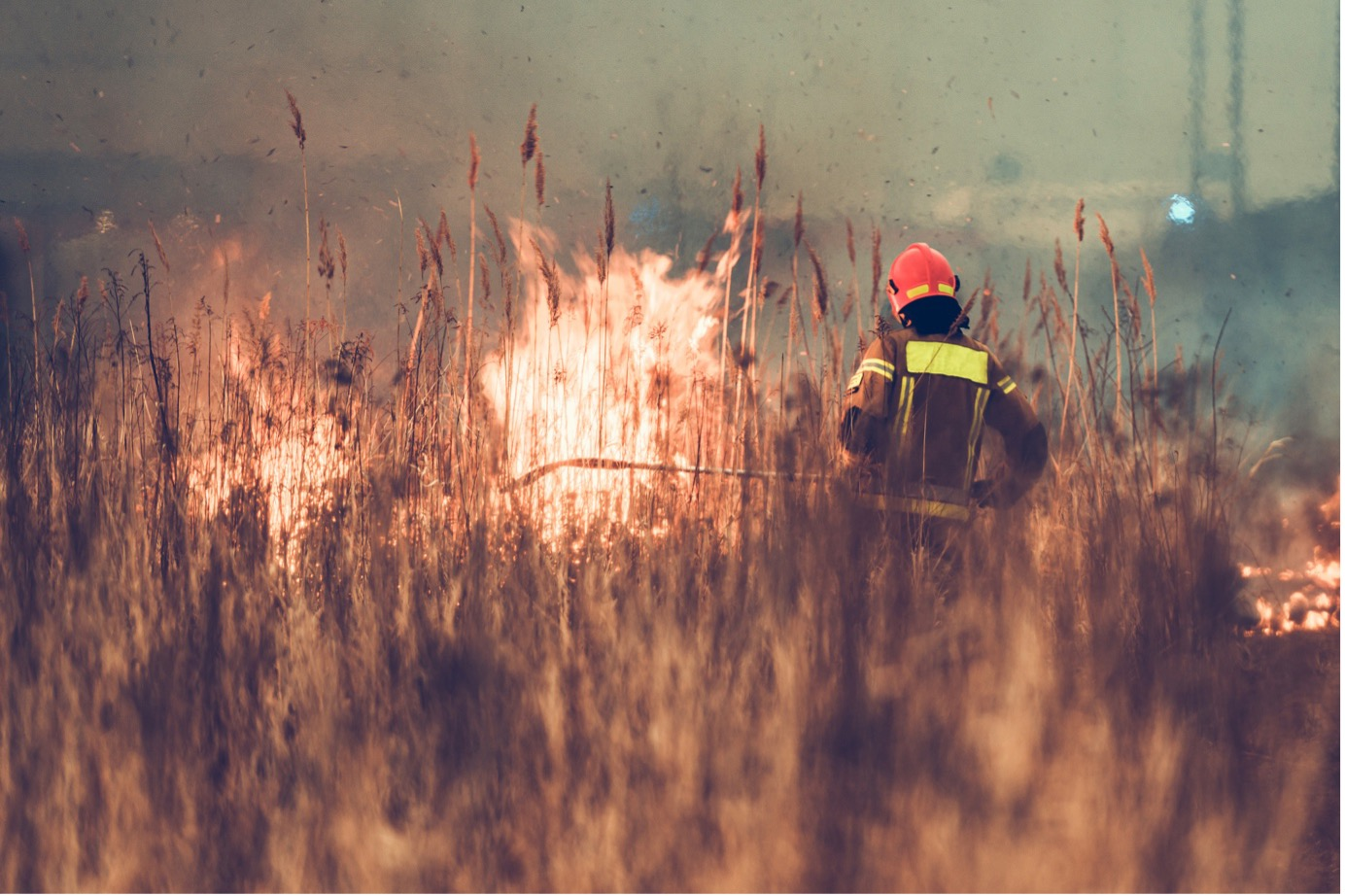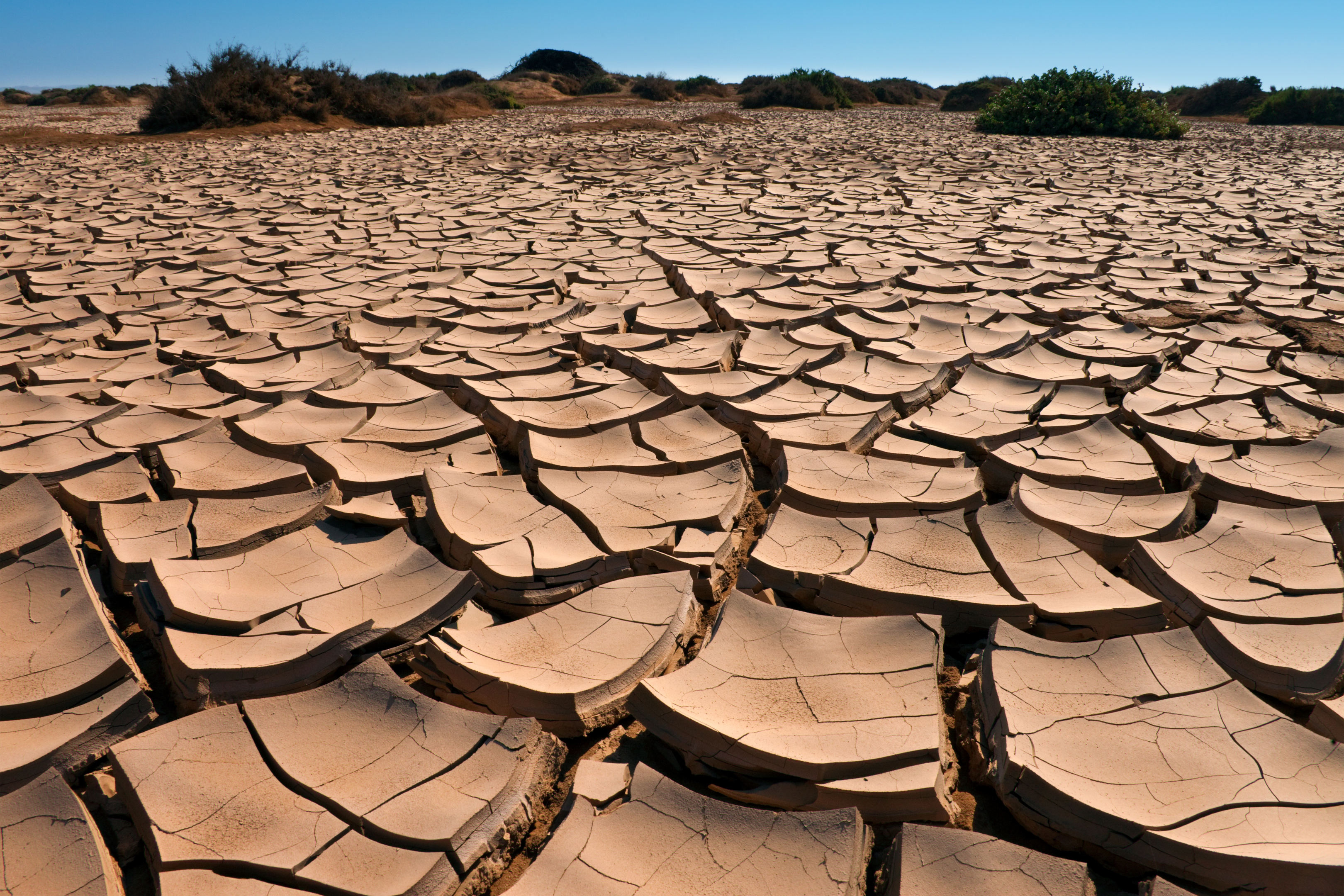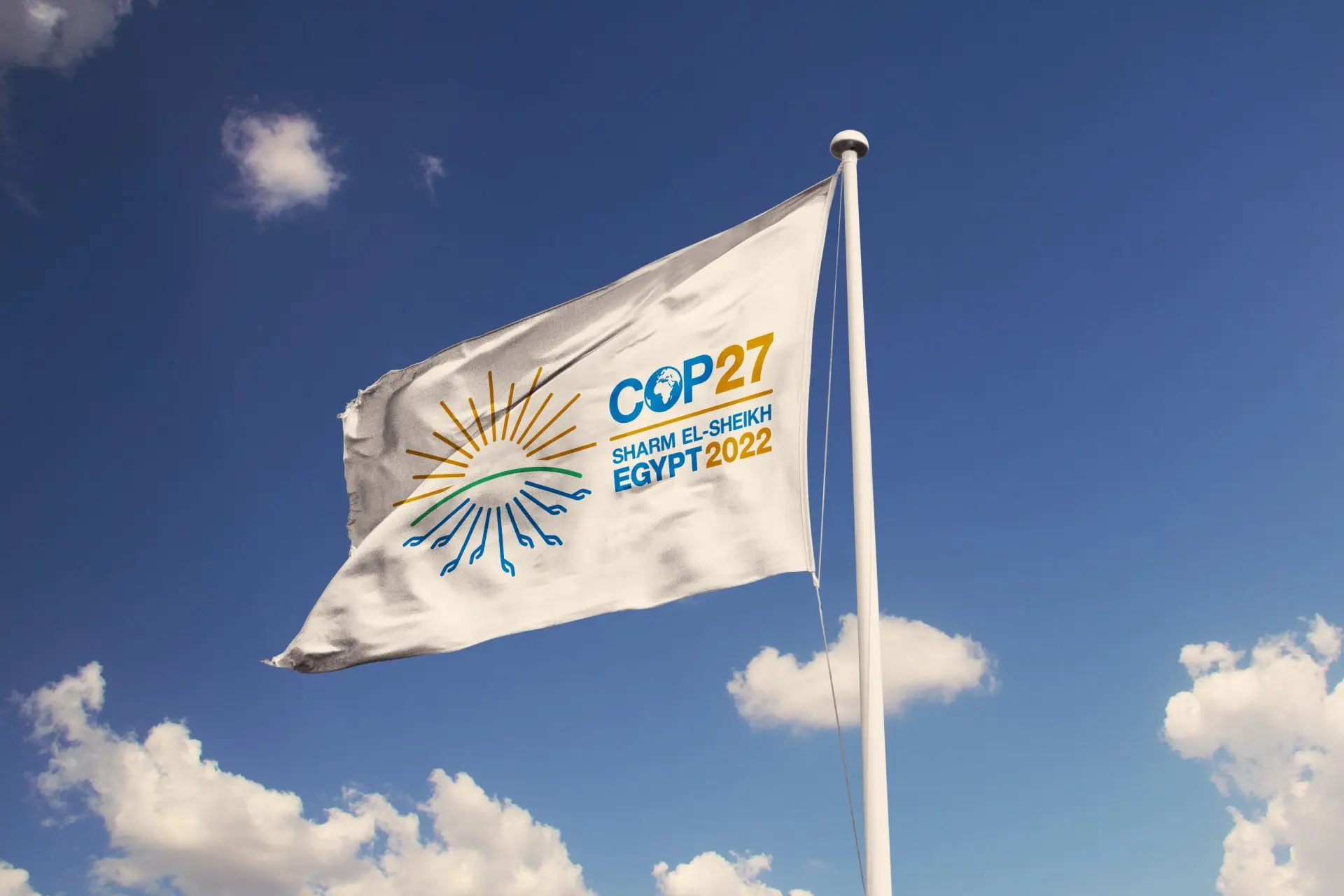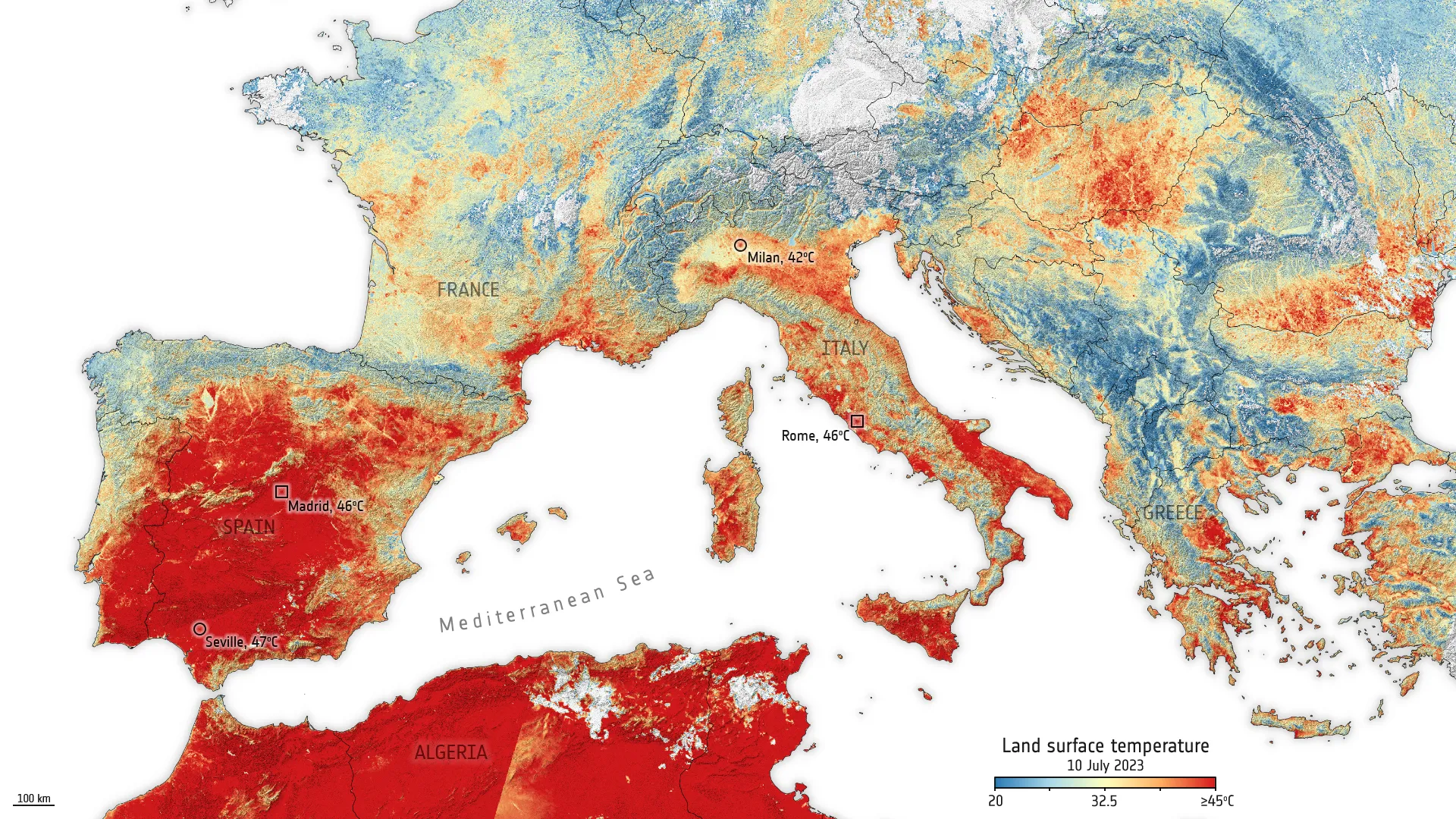Reports from The Guardian and other reputable sources this week reveal that the current heatwave in Europe is unlike any experienced in recent history. The temperatures have shattered records, highlighting the intensity of the crisis.
A Crisis Unfolds
This summer has witnessed an alarming surge in heatwaves and wildfires across Europe, breaking records in the Northern Hemisphere. As the impact of climate change becomes more evident, extreme weather events are intensifying, putting communities and ecosystems at risk.
Greece and Italy are experiencing blistering heat, which has led to widespread disruptions and has exacerbated the risk of wildfires and heat-related illness - such as heat stroke, heat stress and heat exhaustion. We explore the severity and magnitude of these heatwaves, painting a grim picture of the unfolding crisis.
As we witness unprecedented heat gripping the continent, we must confront the reality that our climate is changing, and extreme weather events are becoming more frequent and severe. Temperatures in Greece, Spain and Italy have been over 40C for around a week, with high temperatures set to continue.
Unravelling the link between climate change and extreme weather patterns
Climate experts have long warned that greenhouse gas emissions and human activities are driving climate change. This heatwave is no random occurrence but rather a direct result of global warming.
The question that arises is: “How can we afford to ignore such warnings and continue with business as usual?”
We must recognise our collective responsibility in mitigating climate change to prevent more catastrophic events in the future.
Devastating consequences: Impact on communities and ecosystems
The consequences of the heatwave conditions and wildfires have been devastating. Entire communities were forced to evacuate, while ecosystems faced irreparable damage. We shed light on the human toll, economic implications, and the loss of precious biodiversity caused by these extreme events.
While some nations are implementing measures to protect vulnerable communities and ecosystems, others seem ill-prepared and are struggling to cope with the challenges.
Some regions are more susceptible to the ravages of heatwaves and wildfires. We identify the most vulnerable areas and discuss the social and economic disparities that exacerbate their susceptibility. Additionally, we emphasise the importance of addressing climate change with equity and justice in mind.
Battling the flames: emergency responders on the frontlines

We express our gratitude to the brave emergency responders who risked their lives to combat the wildfires. In every case of extreme hot weather, they face a multitude of challenges, which can make it more difficult to provide adequate support and resources for effective disaster response to record temperatures.
Biodiversity in peril: Impact on wildlife and natural habitats

The effects of these extreme weather events extend beyond human populations. Wildlife and natural habitats suffered immensely, with long-term implications for biodiversity conservation.
As forests burn and natural habitats are destroyed, the ecosystems that support biodiversity and contribute to the health of the planet are in peril. The implications of such ecological disruptions are far-reaching and cannot be underestimated.
The health toll of extreme heat

Whilst numbers and statistics can describe the scale of a disaster, the human stories behind the headlines are equally vital.
The scorching heat posed severe health risks for people, particularly vulnerable populations such as the elderly and children. We delve into the health concerns arising from extreme heat and exposure to smoke, emphasising the need for public health interventions and awareness campaigns.
Climate policy and mitigation: Time for stronger action

Governments and policymakers must enact measures to reduce greenhouse gas emissions and transition to renewable energy sources. Individual action also plays a role; from reducing our carbon footprint to supporting sustainable practices, we all have a part to play in securing a better future.
Words from our CEO, Bruce Bratley
The 2023 European heatwaves and wildfires serve as a stark reminder of the climate crisis unfolding before our eyes. The time for action is now. By understanding the link between extreme weather events and climate change, supporting vulnerable communities, and advocating for stronger climate policies, we can collectively work towards a sustainable and resilient future for Europe and beyond.
Here are Bruce’s thoughts on the ongoing extreme weather and climate change:
“Political parties need to step up and make some big and urgent decisions on the climate. We're nowhere near 1.5 Celsius of warming yet, but already seeing devastating impacts as reported in this Guardian article.
We need the Labour Party and the Conservative Party to lean in to the climate emergency and not run away from it. The cost of living crisis and climate emergency are different sides of the same coin.
We need systemic change to tackle the climate crisis and to do this we need strong leadership in Whitehall, local politics and businesses.”


